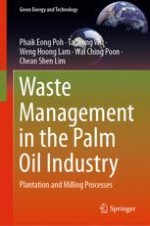This book presents the technological developments that are currently being researched or implemented in the management of palm oil industrial waste. After introducing the plantation and milling processes, the book focuses on the wastes generated solely from plantation and milling activities, as reducing waste from these two sectors will enhance the overall sustainability of the entire palm oil industry eco-system. It then evaluates the sustainability of current practices and elaborates on technological developments in the two sectors, before critically assessing options to treat wastes generated from the plantation and milling process. To properly contextualise the work, it also includes a section on socio-economical sustainability, as well as an industrial case study.
A valuable resource for academics interested in the evolution of sustainable waste management strategies within this industrial context, the book also appeals to practitioners in the field who wish to improve the sustainability of their particular plantation or mill.
